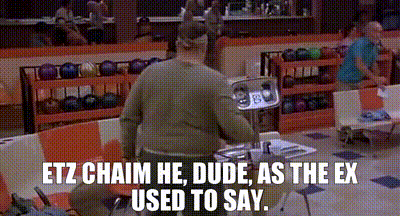Your everlasting summer and you can see it fading fast,
So you grab a piece of something that you think is gonna last.
Well, you wouldn't even know a diamond if you held it in your hand,
The things you think are precious I can't understand.
What did you do when it felt like the world was ending?
Did you hoard toilet paper? Organize zoom trivia night calls with friends? Take up making sourdough? Pour yourself into a book or video game or substance that let you escape uncertainty for a little bit? Or were the screaming kids, or uncomfortable roommate interactions, or impossible navigation of the countless personal health protocols all too overwhelming? Did you pour yourself into remote work, or grit your teeth beneath a sweaty mask at an IRL job demanding far too much from you? Or did you check out of work altogether?
When covid hit, it felt like the floor dropped out from beneath us. Stable, predictable aspects of the world suddenly felt uncertain, and we were all left grabbing for something to hang on to.
I grabbed tight onto Torah and Jewish practice, immersing myself in the study of religious texts, prayer, and community engagement.
In truth, I jumped into the deep end in 2019, well before any of us had begun hearing vague rumors of something happening in China. My initial inspiration to explore my spiritual heritage was far more personal and confusing, and surprisingly borne out of inquiries related to how I would find meaning and confidence in my work life. I had a personal form of disorientation that then became subsumed in the collective disorientation that began in March 2020.
Covid feels mostly behind us, but this feeling of disorientation and overwhelm hasn’t really faded. Most people seem concerned about the trajectory of the world for completely different reasons. One person might say climate crisis; another might say resource depletion or population collapse. One might say racism or colonialism; another might say religious or political extremism or AI. One might say late capitalism; another might say the end of American empire or global debt or inflation.
The problem isn’t just crises, but the extent to which we are constantly being pitched solutions to these crises. This persistent feeling of disorientation and overwhelm is arguably a feature of the post-modern world, a continuation of the Future Shock idea; the speed and ease with which we can be reached and persuaded of crises (and solutions) is unmatched in history and continues to accelerate. Everyone seems crazier now in increasingly specific ways, defined by the particular set of influencers, brands, politicians and movements that are embedded in their particular info-bubbles.
You’re gonna have to serve somebody and those “somebodies” are in fierce competition. And even if you believe the world is better and less violent than it’s ever been in history, the question remains: how should you spend your time?
The two big “solutions”/ “somebodies” that I see most of my contemporaries avidly organizing their lives around and deriving meaning from are either professional achievement (crisis: you will be poor, insignificant, and suffer if you don’t make work the central effort of your life) or social justice (crisis: you will be complicit in the systematic suffering of others unless you make fighting it the central effort of your life). Workism or Wokeism.
I don’t want to come off as invalidating anyone else’s source of meaning, or even deny that these crises are real. If either or both of these feel real and meaningfully orient your life, that’s awesome, and my catchy alliteration isn’t intended to denigrate anyone. I’m just pointing at two ideologies that, for me, do not feel like dependable ways of weathering a whole host of storms that are here or on the horizon. Maybe there’s a chance that they’re not working for you either.
When things felt particularly overwhelming and unpredictable, I felt an impulse to grab something stable and deep, a potentially reliable source of the secrets to physical, intellectual, and spiritual survival through the ages that could transcend and continuously speak to the endless litany of crises. The Lindy Effect stipulates that the longer something has been around, the longer it will likely survive; if my ancestors’ tradition managed to survive over 3000 years of wars, exile, genocide, pandemics, the rise and fall of empires, maybe there’s something there?
Our central challenge in life is to move through the inevitable challenges with grace and trust that our actions will actually serve us, our families, communities, countries, the world, and beyond.
I’m grabbing hold of something that feels deeper to me.
“Etz chayim he, dude, as the Ex used to say”1
“Etz chayim he” refers to a passage from Proverbs 3:17-18 (and The Big Lebowski) that is also sung during Jewish services where the Torah is recited, poetically describing the Torah: “She is a tree of life to those who hold on to her, and all of her supporters are happy; her ways are pleasant ways, and all her paths peaceful.”





Dude, I'm so glad you are writing. I look forward to more great pieces like this one.
I'm here for this message and all its uncomfortable implications. But I'm a words guy and would love to know if you've given any thought to what you might call the path you're on?
"Jewish-first"?
"Etz chayim"?
Maybe even "Etz hasadeh"?